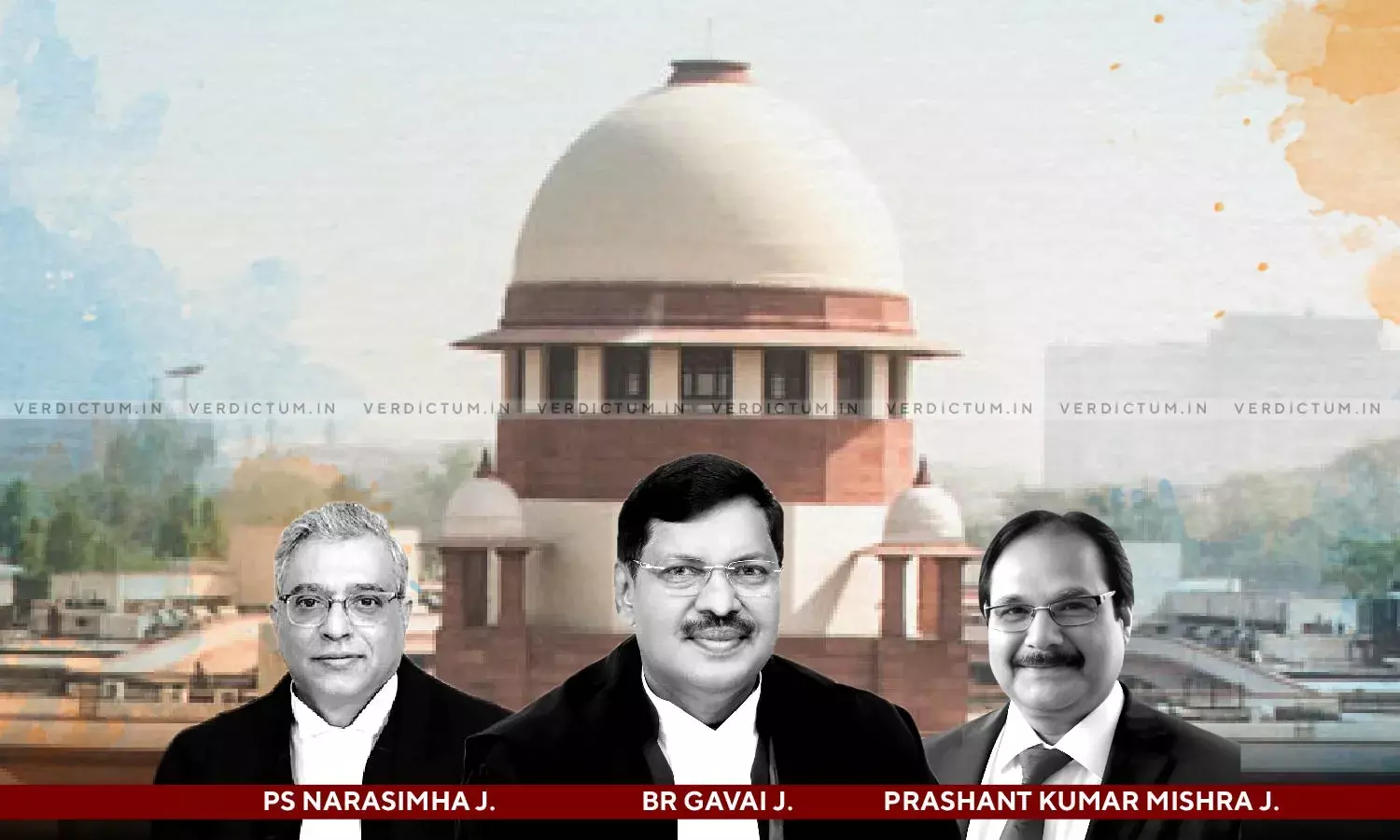Rape & Murder Of 3-Month-Old Baby| Trial Court Conducted The Trial In A Hurried Manner- SC Sets Aside Death Sentence, Orders Denovo Trial

The Supreme Court in a 2018 case has set aside the death sentence of a man accused of raping and killing a three-month old girl child and has remitted back the matter to the Trial Court. It said that the Trial Court conducted the trial in a hurried manner without giving proper opportunity to the accused to defend himself.
A batch of two appeals was filed against the judgment of conviction and sentence passed by the Madhya Pradesh High Court, Indore Bench whereby it upheld the conviction of the appellant/accused under Sections 363, 366-A, 376(A), 376(2)(i), 376(2)(j), 376(2)(k), 376(2)(m), 302, and 201 of the Indian Penal Code (IPC), and Section 5(m) and 5(i) read with Section 6 of Protection of Children from Sexual Offences Act, 2012 (POCSO Act). The High Court confirmed the death sentence imposed on the appellant by the Sessions Judge.
The three-Judge Bench comprising Justice B.R. Gavai, Justice P.S. Narasimha, and Justice Prashant Kumar Mishra held, “The Trial Court treated the accused as if he is carrying a magic wand which is available to produce highly qualified experts, who are government servants, on a phone call. There was no opportunity, in the real sense, to the appellant to cross-examine the experts. … we are of the considered view that the Trial Court conducted the trial in a hurried manner without giving proper opportunity to the accused to defend himself. Therefore, the Judgment of conviction and sentence passed by the Trial Court and affirmed by the High Court is hereby set aside and the matter is remitted back to the trial court for de novo trial by affording proper opportunity to the appellant to defend himself.”
The Bench directed the Trial Court and the District Legal Services Authority, Indore to provide assistance of a senior counsel to the appellant to contest the trial on his behalf.
Senior Advocate B.H. Marlappalle and Advocate Rajat Mittal appeared for the appellant/accused while Advocate Pashupathi Nath Razdan appeared for the respondent/State.
Factual Background -
The complainant and his wife were engaged in the business of selling balloons in Indore (M.P.) and the complainant along with his family members was sleeping at a platform. At about 05:00 a.m. when complainant and his family members woke up, they did not find the deceased (complainant’s daughter) at the place where she was sleeping. Despite search, they could not find her and thereafter, a missing report of his daughter was lodged at the police station. On coming to know about the discovery of a dead body, the complainant went to a spot and identified the deceased as his daughter.
Based on the evidence brought on record during the course of trial, wherein the prosecution examined 29 witnesses and also proved 78 documents including expert opinion/chemical report/FSL report, the Trial Court convicted the appellant for the subject offences against which the appellant preferred appeal before the High Court. The Sessions Court also sent reference to the High Court under Section 396 of Cr.PC. for confirmation of death sentence. The High Court confirmed the death sentence and resultantly the criminal appeal preferred by the appellant was also dismissed.
The Supreme Court in view of the facts and circumstances of the case observed, “In the case at hand, the prosecution is based on circumstantial evidence in which the prosecution has to prove each link in the chain of circumstantial evidence and the important chains in the link are DNA report, FSL report and Viscera report. When the reports were challenged by the accused before the High Court, it was brushed aside by observing that even if the authors of the reports were not called for evidence, in terms of Section 293 Cr.P.C., the reports are not open to question as the defence had an opportunity to cross-examine the authors of the reports during the trial.”
The Court said that the High Court was not correct in saying that the defence had an opportunity to cross-examine the experts. It further noted that the trial has been conducted on day-to-day basis wherein the accused, who was in jail and defended by a counsel from legal aid, was compelled by the Trial Court to produce defence witness of his own in one day.
“It was impossible for the accused himself to produce Dr. Anil Kumar Singh and Dr. Kamlesh Kaitholiya, the authors of the Reports (Ex.P-72), in one day because the said experts are government servants and could not have attended the Court at the request of an accused in jail”, also said the Court.
Accordingly, the Apex Court disposed of the appeals.
Cause Title- Naveen @ Ajay v. The State of Madhya Pradesh (Neutral Citation: 2023 INSC 936)


